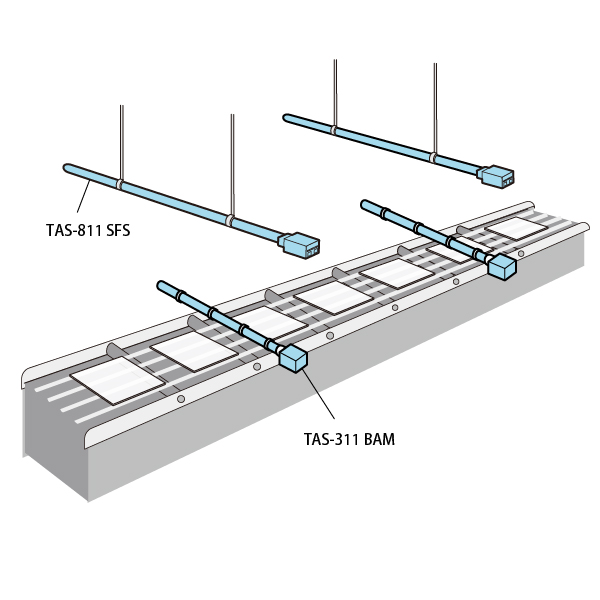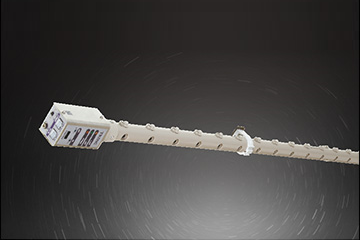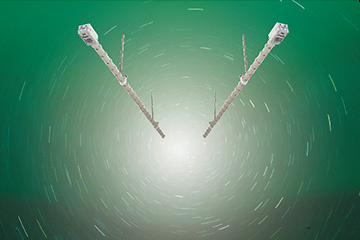SOLUTION
Chemistry/Materials
FPD glass manufacturing plant reduces dust defects and complaints to “zero”
Example at a display glass manufacturing plant
| At an FPD glass manufacturing plant of a major glass manufacturer, foreign matter adhesion was not allowed on the entire surface of large-area panels, so countermeasures were essential. Since the biggest cause of foreign matter adhesion was static electricity charged by the glass panels, the plant had installed a large number of bar type ionizers in its equipment to take countermeasures. However, the ionizers that were initially used were of the air-assisted type that used compressed air or fan air, which disturbed the airflow in the cleanroom and equipment, causing foreign matter to fly around and increasing the adhesion of foreign matter. In addition, the use of an air-assisted ionizer for static elimination of glass panels coming out of a heating furnace resulted in a rapid cooling of the temperature, making it impossible to provide anti-static measures throughout the entire glass manufacturing process. |
 |
The above backgrounds led to the adoption of TRINC’s no-blow ionizers, which have high static elimination capability in spite of their no-blow operation, and they have succeeded in significantly reducing foreign matter adhesion by replacing air-assisted ionizers. As a result, the number of claims of foreign matter defects has been reduced to zero.
Furthermore, the one-touch cleaner and automatic cleaner, which are the discharge needle cleaning mechanisms of TRINC’s ionizers, enable easy maintenance of the ionizers installed in the equipment, making them indispensable devices for glass production plants that use ionizers in large quantities.
Furthermore, the one-touch cleaner and automatic cleaner, which are the discharge needle cleaning mechanisms of TRINC’s ionizers, enable easy maintenance of the ionizers installed in the equipment, making them indispensable devices for glass production plants that use ionizers in large quantities.


